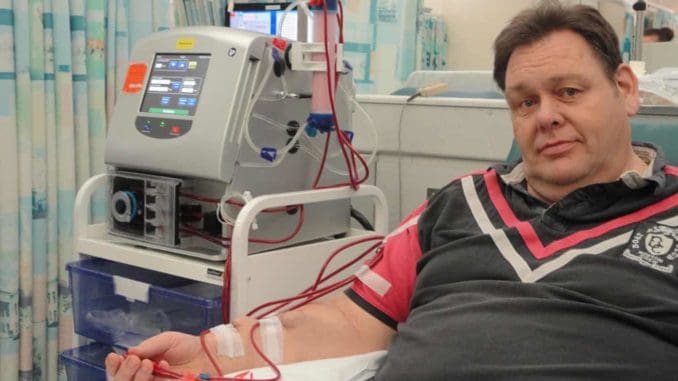
A recent sell-off of dialysis stocks due to Novo Nordisk’s press release last week about Ozempic may turn into a rout once people become aware of a paper written by Dr. David Moskowitz which reveals that about 90% of dialysis can be prevented with high dose Quinapril.
Even if Ozempic is no better than Jardiance and Farxiga at slowing down kidney failure, Quinapril will end the dialysis industry.
The 10% of kidney patients that Quinapril can’t help—those with polycystic kidney disease, lupus, etc.–could all get a cadaver kidney transplant, given the current number of kidney patients (130,000; 10% = 13,000) and cadaver kidney transplants (23,000 a year).
- A patient of Dr. Moskowitz who lives in San Antonio, Texas, was told to start hemodialysis five and a half years ago, but is still off the kidney machine thanks to Quinapril.
- Because of the policies and rulings by the FDA, she is running out of her supply of Quinapril because the FDA found nitrosamine contaminants in two factories that make Quinapril, and it’s now unavailable worldwide.
- Unless the FDA relaxes its regulation about nitrosamines, many patients will go on dialysis and die soon.
So we have a generic drug that’s 100X cheaper than Ozempic, which can eliminate the dialysis industry globally, which has been deliberately ignored by healthcare for the past thirty years, and which is unavailable thanks to bureaucratic blindness.
If that isn’t a made-for-our-times story, I don’t know what is.
Here are some references about Dr. Moskowitz’s protocol and healthcare’s deliberate indifference to it: https://www.bmj.com/content/363/bmj.k4303/rr
About the Author: David W. Moskowitz, MD- Chairman, Chief Executive Officer, and Chief Medical Officer
Dr. Moskowitz majored in Chemistry (summa cum laude) at Harvard College, Biochemistry (first class honours) at Merton College, Oxford, and received an MD (cum laude) from the Harvard-MIT Division in Health Sciences and Technology (Harvard Medical School). He trained for 7 years in Internal Medicine, Biochemistry, and Nephrology at Washington University School of Medicine in St. Louis before spending 11 years on the faculty of St. Louis University School of Medicine. Since 1994, Dr. Moskowitz has experienced first hand the clinical effectiveness of knowing a disease-associated gene (the angiotensin converting enzyme, or ACE, gene). Dr. Moskowitz is a pioneer in the field of medical genomics, and has been recognized for his groundbreaking treatment of diseases associated with the angiotensin I-converting enzyme, such as chronic renal failure due to hypertension or type II diabetes.

